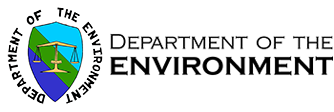7552 Hummingbird Highway,
Belmopan City, Belize, C.A.
These Guidelines (or Operational Standards) are set-forth for the safe and environmentally sound operation of light industries in Belize. The purpose of environmental guidelines are to propose measures that would prevent, control, and mitigate the environmental degradation that could arise from activities related to the establishment and operation of light industries or similar developments, for example, storage depots and outlets for liquefied petroleum gases, service stations, etc. It ensures that light industries are properly located, well designed and equipped to operate with safety of the public, staff and environment in mind. Environmental guidelines are intended to provide guidance to owners and operators of light industries as to the likely environmental impacts associated with the industry and the acceptable methods of control. In some circumstances, alternative practices or equipment, other than those suggested in guidelines, may be equally effective in limiting environmental impact. The guidelines are not intended to be regulatory, but essentially advisory, and are definitely not intended to encroach on any other areas of legislative responsibility.
Guidelines for LPG Industry
The purpose of this document is to propose measures that would prevent, control, and mitigate the environmental degradation that could arise from activities related to the establishment and operation of storage depots and major distribution outlets for compressed inflammable gases or liquefied petroleum gases.
Guidelines For LPG Industry
Over Water Environment Guidelines
For several years, the Department of the Environment (DOE) and the National Environmental Appraisal Committee (NEAC) has received numerous applications for the construction and operation of overwater structures, specifically, overwater cabanas, villas, restaurants and bars. These structures have been proposed primarily for tourism purposes and are located in the coastal areas such as the offshore cayes, riverbanks and lagoons. The DOE and NEAC recognize that developments of this nature should be conducted in a prudent and regulated manner and have developed guidelines that are intended to assist in determining where, how and what type of structures can be allowed throughout the country.
Over Water Environmental Guidelines
Crop Protection Guidelines
The purpose of this document is to outline the approved method for the recovery and disposal of crop protection product packaging that would prevent, control, and mitigate the negative environmental impacts that could arise from activities related to the disposal of crop protection product packaging (pesticides containers.)
Crop Protection Guidelines
Marina Guidelines
With the growth of the tourism industry and the rapid growth of the cruise ship industry in the last five years, there has been an increased demand for marina services where tender vessels, yachts, and other boats could moor and be offered safe harborage, and other supporting services. The Department of the Environment therefore, with a mind to regulate these types of activities, has developed these guidelines to mitigate the adverse environmental impact associated with these types of activities.
Marina Guidelines
ECP Automotive Repair Guidelines
This Environmental Code of Practice is intended to provide guidance to owners and operators of automotive repair industries as to the likely environmental impacts associated with the industry and the acceptable methods of control. This code explains the potential for impacts on the environment from the automotive repair industry and provides guidelines describing how benefits can be achieved with minimal impact maintenance.
ECP Automotive Repair
Service Stations Guidelines
These Guidelines (Operational Standards) are set-forth for the safe and environmentally sound operation of service stations in Belize. It ensures that service stations are properly located, well designed and equipped to operate with safety of the public, staff and environment in mind. Operators of all service stations are legally bound to manage their service stations according to these standards.
Service Stations Guidlines
Automotive Spray Painting Guidelines
This environmental code of practice is intended to provide guidance to owners and operators of automotive spray painting premises as to the likely environmental impacts associated with the industry and the acceptable methods of control. In some circumstances, alternative practices or equipment, other than those suggested in the code, may be equally effective in limiting environmental impact. The code is not intended to be regulatory, but essentially advisory, and is definitely not intended to encroach on any other areas of legislative responsibility.
